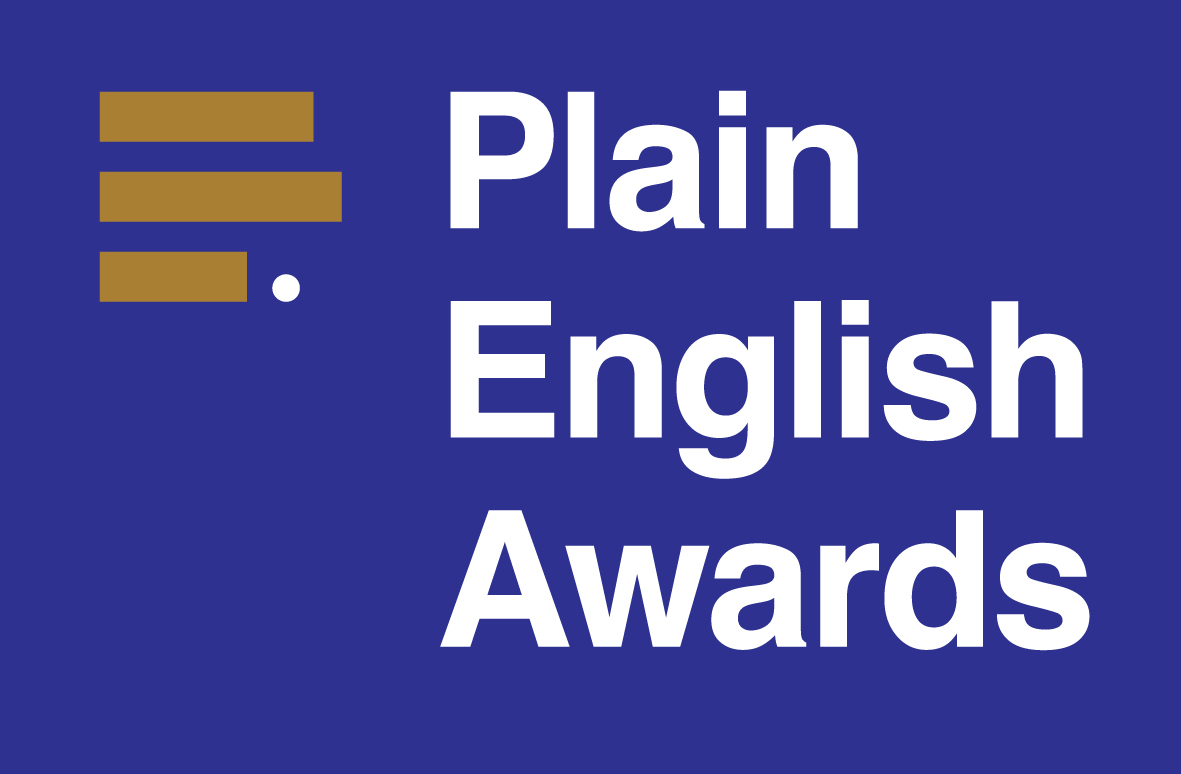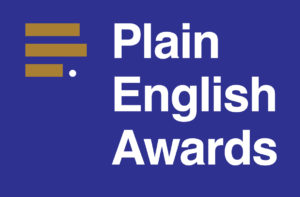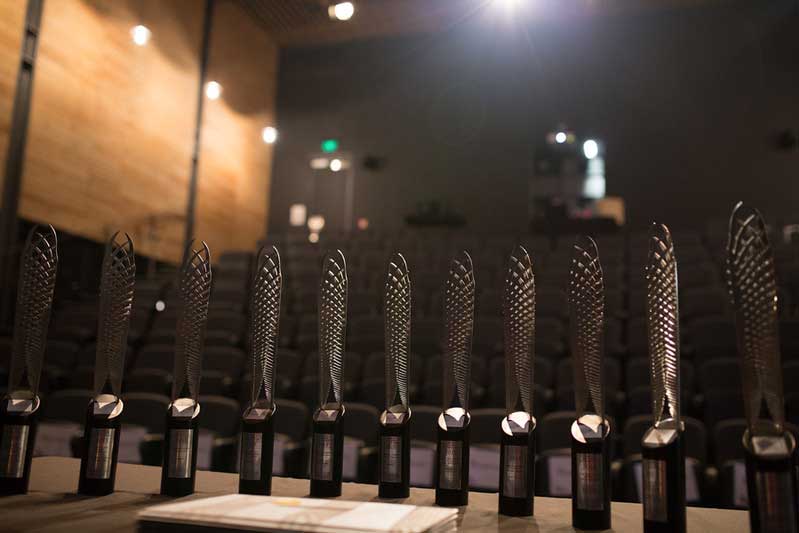
Consumer NZ wants the best for New Zealand communication. Image by Daria Nepriakhina. Unsplash licence.
The Plain English Awards and Consumer NZ have something very important in common — we both want what’s best for New Zealanders.
The Plain English Awards is a not-for-profit charity that aims to raise the bar for clear communication. We want everyday New Zealanders to understand what’s written for them.
Consumer NZ is a non-profit organisation dedicated to getting New Zealanders a fairer deal. So it’ll be no surprise that Consumer NZ is a long-term supporter of the Plain English Awards. In particular, Consumer NZ has supported our People’s Choice categories for many years.
Consumer’s Chief Executive, Sue Chetwin, has been a member of our judging panel for several years, focusing specifically on our People’s Choice categories. She’s returning again this year as one of the panel judging our Worst Brainstrain category.
We’re sure you’ll join us too by nominating the best and the worst communications you find in your daily life. All of us want New Zealanders to be able to make legal, financial, health, and all sorts of other decisions with ease.
Take a look at what Consumer NZ has to say about this year’s People’s Choice Awards
Find out how to nominate documents here
Nicola Welby July 12th, 2019
Posted In: 2019 People's Choice Awards, Sponsors
Tags: Brain Strain Award, clear writing, Consumer NZ, Industry awards, PEA, People's Choice Awards, People's Choice Awards 2019, plain English, Plain English Awards, plain language, power of plain English, writing for the public

A helping hand can come from the most unlikely places. Image by Youssef Naddam. Unsplash licence.
In times of trouble, who might you expect to get help from? Friends, family, colleagues, or your close community all might offer to lend a hand. It’s not often that a complete stranger jumps in to help. Particularly one that’s disguised as an industry award with the title ‘Brainstrain’.
Meet your new friend — the Brainstrain Award
The People’s Choice Awards offer members of the public an opportunity to celebrate excellent communications and to draw attention to bad ones — through the Brainstrain Award.
Winning the Brainstrain Award is like being offered a helping hand from a stranger. We say ‘stranger’ because all nominations are anonymous (and free).
The ‘helping hand’ is an opportunity for the winner to turn their communication around and make it better than ever. (And maybe even enter the Turnaround Award in the next round of full Plain English Awards in 2020.)
The Brainstrain winner gets some plain English love
The winning nomination gets the unenviable title of ‘People’s Choice — Worst Brainstrain Communication’. Sure, the word ‘Brainstrain’ doesn’t sound that great. But when you read what else winners receive, the title becomes a little less ominous.
Our beloved Brainstrain winner receives not only the famous Brainstrain rubbish bin filled with sour worms, but also some very constructive feedback and training in the form of:
- feedback on their communication (and how it could be improved) from our expert panel of international judges
- the latest StyleWriter plain English editing software — single-user licence (from Editor Software)
- 2 hours free consultancy from Write Limited to start transforming the document or webpage into plain English
- a place on any of Write Limited’s 1-day open workshops to use before 31 March 2020.
Do your bit for improving New Zealand’s communication. Submit your nominations for this year’s Brainstrain Award
Nicola Welby June 26th, 2019
Posted In: 2019 People's Choice Awards, Brainstrain, Communications
Tags: Brainstrain, People's Choice Awards, plain language, Worst Brainstrain

Taking care costs nothing and means everything. Image by Ross Findon. Unsplash licence
Read on for part 1 of the inspiring speech given by Lynda Harris, Awards founder and CE of main sponsor Write Limited, at the 2018 Plain English Awards
Good evening! Let me start with a question: Why are you here? What prompted you to enter the annual Plain English Awards? What brought you along tonight?
I’m pretty sure that you’re here because you care. You care about the cause. You care about the ideal of plain language because you understand the cost, in both financial and human terms, of poorly conceived and written communications. You care about wasted effort, wasted time, and wasted money.
And you care about the enormous disadvantage that poor writing can bring, especially when the communications are about access to justice, or help of some kind, or are connected with legal, financial, or health services.
It was the very same notion of care that prompted us, 13 years ago, to set up these Awards.
It was because they cared that our foundation sponsors, Consumer, TechCommNZ, and Graphic Solutions came on board, as did our other wonderful sponsors who followed.
And it was also that notion of care that led us to establish the WriteMark Plain Language Standard, now cleverly rebranded by Craig Christensen to reflect that central idea of — you got it — care.

The thought I’d like to leave you with tonight is that, rather than thinking of care as simply an emotion connected with plain language, let’s recognise that care has tremendous value in its own right. Care can be a powerful catalyst for action if we follow through on what we feel prompted to do.
I came to this conclusion after preparing for a presentation at Clarity2018 in Montreal recently. The conference was attended by over 500 delegates from around the world, most of them lawyers. In my presentation I explored the idea that having a set of strong, people-based values baked into the firm’s mission might lead naturally to clearer, more accessible law.
I interviewed several B Corp law firms in Australia and Canada. B Corps are accredited organisations that believe business can be a force for good in the world.
What struck me was that in each conversation the people I interviewed used the word care — a lot. They also used another word: ‘believe’. As they spoke about what they believed in, their values, and precisely what they care about, became clear.
Here’s what three of those firms said.
Alexandra Doig from Atticus values care in communication
I loved my interview with Alexandra Doig, Managing Partner of Atticus Lawyers in Melbourne, Australia. With strong convictions about human rights, Alexandra chose to get B Corp accreditation several years ago. Her core philosophy, ‘We believe in treating people as they would want to be treated’, shone through our entire conversation.
It’s not often you hear a lawyer say, ‘We want everyone to feel comfortable all of the time. We know clients are already stressed with the issue. We aim to reduce that stress and make them feel happier … create a safe space … feel that we are their cheerleaders.’
I asked Alexandra the all-important question: Does your chief value of ‘care’ influence the way you write to your clients? The answer: ‘Yes. Telling people what they need to know, and doing all we can to help, means we need to write like a human. We need to communicate clearly and personally in ways that don’t alienate. We can’t give a client a convoluted document. We have to walk the talk and act on what we believe in.
‘We could write a ten-page document. We try to write a one-pager that clearly captures the most important info, and that the client can easily understand and be comfortable with. It’s a calculated risk — with benefits.
‘We want to write in a way that gives clients that lightbulb moment. If a client doesn’t walk away with a greater understanding of their position than they had when they arrived, we haven’t done our job properly.’
Bravo, Alexandra!
Joel Cranshaw from Clearpoint. believes in simple legal services
Joel’s strapline on his website says it all: ‘Legal services — reimagined simply.’ With a background as an experienced corporate lawyer, Joel said he’d always loved solving client problems. But as time went on, he felt less and less comfortable in a system based on chargeable units. ‘I felt there was no incentive to be efficient, and this often led to friction between client and lawyer.’
Prompted by strong values that focused on serving the client in the best way possible, Joel conceived Clearpoint’s unusual model, where they work on retainer for small to medium-sized firms in Melbourne and beyond. Achieving B Corp status was a natural fit.
Joel is a straight talker: ‘We want to work with compassionate people who value what we do and whose approach aligns with the concept of conscious capitalism. We don’t work with clients who don’t have our values.’
When asked if his values-based approach created clearer law, Joel’s answer was unequivocal: ‘Yes! I say that for two reasons. Our retainer-based fee model means that we must work efficiently — so we must be clear, concise, and to the point. And what we believe in, our philosophical approach to compassionately meeting clients’ needs, also means that we must communicate in ways they can readily understand.’
Applause once more from me!
Sophie Tremblay from Novalex runs a purpose-driven business
Sophie’s was a bold start-up story — similar to the Suspended Coffee movement (buy a coffee, pay for two — those who can’t afford to pay get coffee for free). Sophie and her business partner Ryan Hillier set up Novalex to have a self-sufficient business model, serving both corporate clients and others who need legal help. Neither an exclusively for-profit business, nor an exclusively philanthropic organisation, Novalex is a purpose-driven enterprise doing business for good. For every fee-paying hour, they give a pro-bono hour to eligible start-ups, non-profits, or individuals.
In Sophie’s words, ‘We believe everyone should have access to justice and top-notch legal advice. We hope that corporate clients will see using Novalex as a socially responsible choice. And we hope to give back in any way we can.’
Does this values-based model create clearer law? Sophie: ‘Absolutely! We know that even the smartest people aren’t necessarily familiar with legal terms and concepts. So a huge part of what we do is to make the law understandable. We use concrete examples and remove the abstract, along with many other techniques such as metaphor (“It’s like…”), and “This means…” We remove jargon and make important concepts stand out. We do what we need to do to be understood.’
Care intuitively leads to plain language
Hearing this long list of useful and well-founded plain language techniques, I asked Sophie if she had ever had any formal plain language training. She hadn’t. Nor had Alexandra or Joel. Yet instinctively, motivated by strong human values and a sense of care, all three ticked so many plain language boxes.
My hypothesis was looking good — all three firms proving that care really can be a shortcut to plain language. Admittedly my sample size was only three, but these inspiring leaders and others like them are truly showing the way to clearer law using an approach based on care.
Find out more about each of the three firms here:
Atticus
Clearpoint.
Novalex
Find out more about the WriteMark Plain Language Standard
Melissa Mebus February 12th, 2019
Posted In: 2018 Plain English Awards, Communications, Social good, Sponsors
Tags: 2018 Plain English Awards, Care, plain language, Social good

Ever had that 'feel good' feeling from transforming a piece of text into really clear, readable content?
It’s 10am on a workday morning and a bunch of us are, accidentally and animatedly, tweaking some text on a neglected webpage we administer. ‘Too long!’ ‘It’s so long-winded.’ ‘Uggh, it sounds stodgy and dull’. ‘Look at that next sentence – why, just why?’
We’d intended to check on only a small detail but quickly ended up editing with a passion. Honestly, we didn’t mean to! But, oh, the satisfaction at the glorious transformation. It felt good. Very, very good! The world was now a better place. Instructions were clear. Readers would breeze through it. Job done!
If you too get a happy burst of dopamine from turning around bad writing, you’ll totally get this and probably be nodding in agreement. And if you’ve been on top of the world after some of your own transformations, you’d better share! Enter them in the Turnaround category of the annual Plain English Awards
We’ll be cheering you on, every step of the way!
The Turnaround award recognises the best plain English rewrite of a document or website that was originally difficult to read.
Lynda Harris August 24th, 2018
Posted In: 2018 Plain English Awards
Tags: 2018 Plain English Awards, benchmark, Industry awards, plain language, recognition, transformation, Turnaround Award

From shortlists to finalists — decisions have been tough. Photo by Gaelle Marcel on Unsplash
After some tough deliberations from our judges, here are the finalists in the 2017 Plain English Awards.
As with our shortlists, entries are in no particular order. We haven’t published finalists in some categories so we don’t let the cat out of the bag.
‘Ooh — awesome’
Read some of the feedback we’ve had from judges about this year’s finalists below.
- ‘All three judges found this to be the very best group of entries we have seen in our many years judging these awards.’
- ‘We applaud the effort everyone has made to follow the principles of plain writing.’
- ‘You can be especially proud to win this category among these excellent entries!’
- ‘The friendly, light tone in this rewrite is a delight.’
- ‘When I finished the rewrite I said aloud “Ooh – awesome”.’
- ‘Overall this is an excellent effort.’
Winners will be announced on 23 November
We’ll announce our winners at the Awards ceremony in Wellington on 23 November. We’ll also publish the list of winners on our website later that evening.
Nicola Welby October 20th, 2017
Posted In: Awards brand, Communications, Finalists, Plain English Awards
Tags: clear communication, Finalists, Plain English Awards, plain language

Plain English Awards
Have you heard about the People’s Choice — Worst ‘Brainstrain’ Communication award? It’s the sibling of the People’s Choice — Best Communication award. Here are three things you need to know.
1. The Brainstrain award is the one award that organisations don’t really want to win. It reveals, in good humour, the document or website most notable for confusing and dumbfounding its target audience with obscurity and gobbledygook.
2. The ideal entry is a publicly available or widely used document or website that causes problems for many people.
3. By putting these confusing documents and web pages under the spotlight, we hope that the organisations responsible will rewrite them in beautifully plain English. And we’ve had some great turnaround stories prompted by this publicity.
So why not nominate a great or not-so-great document or website for one of the People’s Choice Awards.
Get involved with the People’s Choice Awards

Plain English Awards
Nicola Welby June 16th, 2017
Posted In: Communications
Tags: Brainstrain, consumers, gobbledygook, plain language, transformation
Media release: 5 November 2016
People’s Choice awards for the best and worst of business writing were announced at a gala dinner in Wellington, New Zealand on Saturday, 5 November.
The award for the Best Plain English Communication was taken out by well-known economic consultancy firm, the New Zealand Institute of Economic Research (NZIER) ahead of a number of strong contenders. NZIER’s report on international trade and agreements and sovereignty, ISDS and Sovereignty, was judged to be an outstanding example of clarity and reader focus.
The judges, Sue Chetwin of Consumer NZ and plain language experts Simon Hertnon and Ralph Brown, had high praise for the writers: ‘The NZIER report is a breath of fresh air to readers used to struggling through lengthy, jargon-filled advisory documents.
‘We wish this style of advisory writing were the norm rather than the exception. Decision makers across New Zealand would not only be better informed, they would have more time and energy available to think about what to do with the advice they receive.’
Judges also praised the communications nominated for the two other finalists, calling Business.govt.nz’s Employment Agreement Builder ‘an impressive online tool’ and Z Energy’s annual report ‘zesty’ and ‘refreshingly engaging’.
As always, the winner of the dreaded ‘Brainstrain’ Communication award was announced at the ceremony. This award reveals, in good humour, the document most notable for dumbfounding readers with gobbledygook.
A job description produced by the Parliamentary Service was the dubious winner. The judges said the job description was ‘…a classic example of the myth that a verbose and impersonal document is somehow more professional than a concise and engaging one.’
To their credit, the Parliamentary Service took the award on the chin. They issued a response by way of a tongue-in-cheek video, shown to guests at the ceremony, in which they welcomed winning such a ‘prestigious’ award.
It’s not all bad news. Along with the traditional bin filled with sour worms, the winner of the Brainstrain award gets two hours free consultancy with Write Limited to start transforming the offending document, or another like it, into plain English.
The People’s Choice awards, one segment of the usual yearly Plain English Awards, were held this year as part of the Clarity2016 conference, an international gathering of plain language and communications specialists, legal writers, and business people.
Awards founder Lynda Harris says, ‘We’ve seen the Awards shift attitudes and expectations about communication in the business, professional, and public sectors. Organisations recognise that plain language is no longer a nice-to-have; it’s crucial to their success.’
The full Plain English Awards programme will resume in 2017.
END
Get more information:
www.plainenglishawards.org.nz
Lynda Harris, founder of the WriteMark Plain English Awards, [email protected] and 021 404990
Gregory Fortuin, Chair of the WriteMark Plain English Awards Trust, 021 465 254
www.clarity2016.org
Nicola Welby November 6th, 2016
Posted In: Communications
Tags: Brainstrain, Clarity2016, clear communication, People's Choice, Plain English Awards, plain language

Nominate the best and the worst for an award
We’re mixing it up in 2016 with a different event from previous years. Our major sponsor Write Limited is co-hosting Clarity2016 this year. So we’re focusing on the People’s Choice categories instead of holding the full range of Plain English Awards. Read on for three reasons to get involved.
You’ve always wanted to do something to help banish jargon and gobbledygook
When you nominate a document for the not-so-coveted ‘Brainstrain‘ Award, you’ll be helping to make a positive difference to the way organisations communicate. Almost without exception, organisations step up to ‘take it on the chin’ when nominated for the dreaded bin of sour worm lollies. With the public scrutiny they get from winning the Brainstrain category, they’re motivated to change.
You’ve found a wonderful example of clear communication that you’d like to share with the world
We love to celebrate the great work happening in so many organisations that are improving the way they communicate. Winning the award for People’s Choice Best Plain English Communication is a public pat on the back for New Zealand’s clearest communicators. Help them get the recognition they deserve.
You’ll be helping to promote New Zealand as a country that takes plain language seriously
The People’s Choice Awards will be announced at the international Clarity2016 conference’s gala dinner. Delegates are coming from around the world to this prestigious event, hosted for the first time here in Wellington.
Contact us if you’d like more information
Anne-Marie Chisnall August 21st, 2016
Posted In: Communications
Tags: Brainstrain, Clarity2016, clear communication, People's Choice, Plain English Awards, plain language

Who's the clearest of them all?
The Awards celebrated 10 years in 2015. The time seemed right for a fresh new look.
Craig Christensen of Graphic Solutions was keen to help. Craig is a great advocate of clear communication in words and visuals. And he designed the popular theme ‘Who’s the clearest of them all?’ for some of our earlier Awards.
‘Who’s the clearest of them all?’ successfully captured the essence of what the Awards are about. ‘We thought it was time to bring that theme back, but with a new twist’, says Craig. So now those words sit in a speech bubble against a background of editing symbols. The idea is to convey the idea of working hard to create the best and most effective communication.
The simple sentence as a graphic
The gold Awards icon is a simple graphic representation of a sentence. It was inspired by the emergence of icon-based visual language in digital media. The best known of these icons is the ‘hamburger menu’ icon, widely used on mobile websites to show where the navigation menu is kept.
Using gold for the icon signifies the prestige associated with the Awards and helps to bridge the gap between the old and new brands. Adding a deep electric blue to the colour palette adds vibrancy while complementing the gold of the original brand.
We’ve used some good old Kiwi phrases as language-based, companion imagery on the website, conveying the idea of fun Kiwi straightforwardness.
A new era for the Plain English Awards
This bold new identity represents the refreshed face of the Plain English Awards. We hope it’s going to become a very visible and recognisable brand and that it will help to further raise awareness of plain English in New Zealand.
Thanks to The Wright Family Foundation for kindly sponsoring the new website.
Anne-Marie Chisnall July 16th, 2016
Posted In: Awards brand, Communications
Tags: branding, clear communication, Graphic Solutions, plain English, Plain English Awards, plain language











